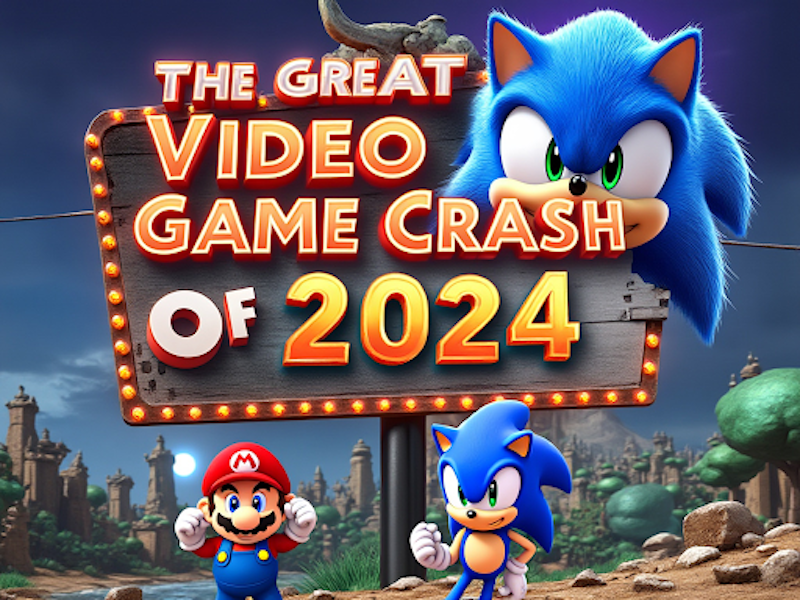They're calling it the Great Video Game Crash of 2024, but crash is too gentle a word. This is a full-on bust, an industry-wide implosion that's been a long time coming.
The suits and executives never learn. They pump millions into flashy AAA games nobody asked for, chasing trends like addicts after their next fix. Now the bills are coming due.
Every day brings news of another studio shuttering or mass layoffs. Bungie, the Halo folks, pink-slipped a bunch. Rocksteady axed a load of people right after their Suicide Squad game flopped. Some poor saps at Square Enix got canned the same day their surprisingly lousy Visions of Mana launched.
The bigwigs scratch their heads, wondering how this could happen when gaming rakes in billions. But revenue doesn't mean profit when you're blowing $250 million on forgettable junk like Concord.
Herman Hulst over at Sony played this hero shooter years back and got dollar signs in his eyes. Next thing you know, Sony's acquired the studio and greenlit a budget that would make Hollywood blush. For what? A cookie-cutter game with no personality, no recognizable characters. Just another soulless cash grab.
Rocksteady used to make decent beat-’em-up games like the Batman Arkham series. Now they're churning out live service dreck that was dead on arrival. The original studio heads bailed—smart move on their part.
It's the same story across the industry. Overinflated budgets, chasing every fleeting trend, piling on shiny graphics and massive open worlds nobody has time to explore. And for what? To make shareholders happy for a quarter or two before it all comes crashing down.
These executives don't give a damn about games. They couldn't tell Mario from Master Chief. All they see are dollar signs, and they'll chase any trend to grab them. Battle royale's hot? Slap it in everything! Live service games printing money? Better force it into that single-player franchise!
They look at pandemic sales figures and think that's the new normal. As if people are going to keep shelling out for mediocre time-wasters now that they can leave the house again.
Even Nintendo's starting to feel the squeeze. They had lightning in a bottle with the Switch, but how long can that last? Now they're warning that games will take even longer to make thanks to ballooning budgets.
The indie scene might save gaming's soul, but for how long? As soon as one of them strikes gold, here come the suits with buyout offers and promises of "synergy." Next thing you know, that scrappy little studio's farting out sequels and DLC packs.
Something's gotta give. This whole ecosystem is rotting away, propped up by hype and nostalgia. Studios bragging about needing 15 million in unit sales just to break even. Fifteen million? Holy cow. What kind of business model is that?
It's going to get ugly before it gets better. More studios will close. More talented developers will get tossed on the street. But maybe that's what gaming needs—a hard reset, a chance to remember what made it special in the first place.
The big-budget blockbusters aren't going away entirely. But this crash might finally teach the industry that bigger isn't always better. That creativity matters more than polygon counts or massive open worlds.
Or maybe I'm too optimistic. Maybe the suits will just find new ways to nickel and dime players, to stretch IPs thin and burn out developers. But something's gotta change. This industry can't keep stumbling forward, drunk on its own hype and hubris.
As for me, I'll keep dumping hours into Slay the Spire as it all unfolds—the crashes, the comebacks, the whole damn circus. It's a hell of a freakshow, even if the ending's still up in the air.

